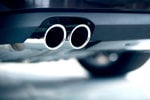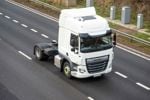It was Daniel Defoe who asserted in 1726 that nothing was certain in life but death and taxes. He did not, however, comment on how complex the taxation system could be.
Benefit-in-kind tax on using a company van for private use was a pretty simple equation until 2005 when the Government changed things.
This was largely to clamp down on company car drivers such as estate agents and accountants who were increasingly choosing LCVs such as the Nissan Navara and Mitsubishi L200 double-cab pick-up trucks as an alternative to a company car and saving a great deal of money.
Unfortunately, in addition to hitting the go-getters, the changes also made things much more complicated – and more expensive – for van drivers and their employers.
Even working out whether or not your drivers are actually using their vehicles for private use is no longer a simple matter.
The law states: “Employees pay tax on a company van if they or a member of their family or household make private use of it. If the employee has the van mainly for work journeys (for example, delivering goods or making calls to customers) and the only private use is commuting, there is no tax to pay.
“If there is other private use, tax is payable unless this private use is insignificant.”
Just exactly what constitutes insignificant use, though, is open to discussion. Officially, the rules laid down are as follows:
Insignificant use. A driver who:
- Takes an old mattress or other rubbish to the tip once or twice a year
- Regularly makes a slight detour to drop off a child at school or stops at a newsagent on the way to work
- Calls at the dentist on the way home from work
Significant use. A driver who:
- Regularly uses the van to do the supermarket shopping
- Takes the van away on a week’s holiday
- Uses the van for social activities
It may sound straightforward but obvious gaps exist. Would a driver who takes a mattress to the rubbish tip, say four times a year, be expected to cough up? Probably not.
In practice, the vast majority of van drivers do not pay BIK tax.
But if the man from HMRC comes knocking at your door in relation to this question, could you honestly say you could prove that your drivers were tax exempt? Once again, probably not.
Detailed mileage records are crucial for van drivers to be able to prove that they did not use their company-provided vehicle on private journeys, because the onus of proof is on the company when the man from HMRC comes calling.
The best way of avoiding problems is to have the correct fleet software in place and there are a number of firms which offer this.
Jaama, for example, offers a system called Key2 Vehicle Management. Managing director Jason Francis said: “One key benefit of these systems, which meet HMRC guidelines on expense claims/submissions, is that mileage and journey details can be easily recorded to enable a detailed travel log to be compiled.
“This will help ensure that vans are only driven for business purposes or ‘allowable private use’ and not driven to supermarkets while the weekly shop is carried out.”
Following HMRC approval, the tax office’s forms can be completed and submitted online in a single transaction across a secure internet connection, via the Government Gateway -– the centralised registration service for e-Government services in the UK.
With tax revenues falling as more and more people are thrown out of work, tax inspectors
are increasingly looking at plugging breaches of the law.
And BIK tax on vans is one of the subjects under the spotlight at present.
What drivers pay
- For private use of a van, drivers are given a £3,000 charge, which means a 20% taxpayer will pay a total of £600 per year
- There is a further £550 charge if free fuel is also provided

















Login to comment
Comments
No comments have been made yet.